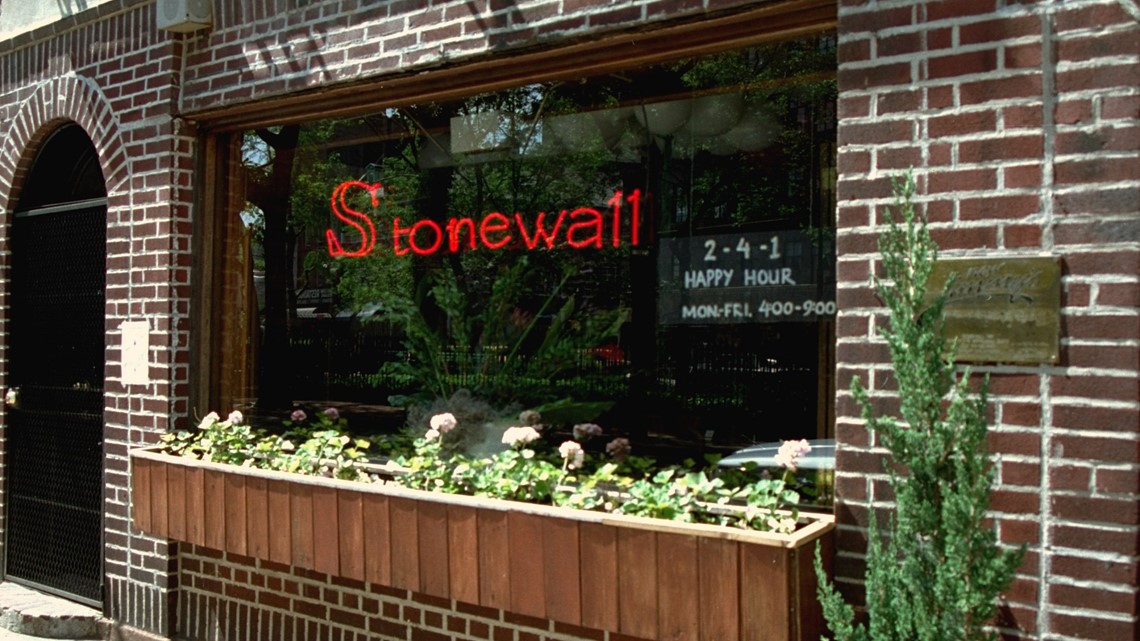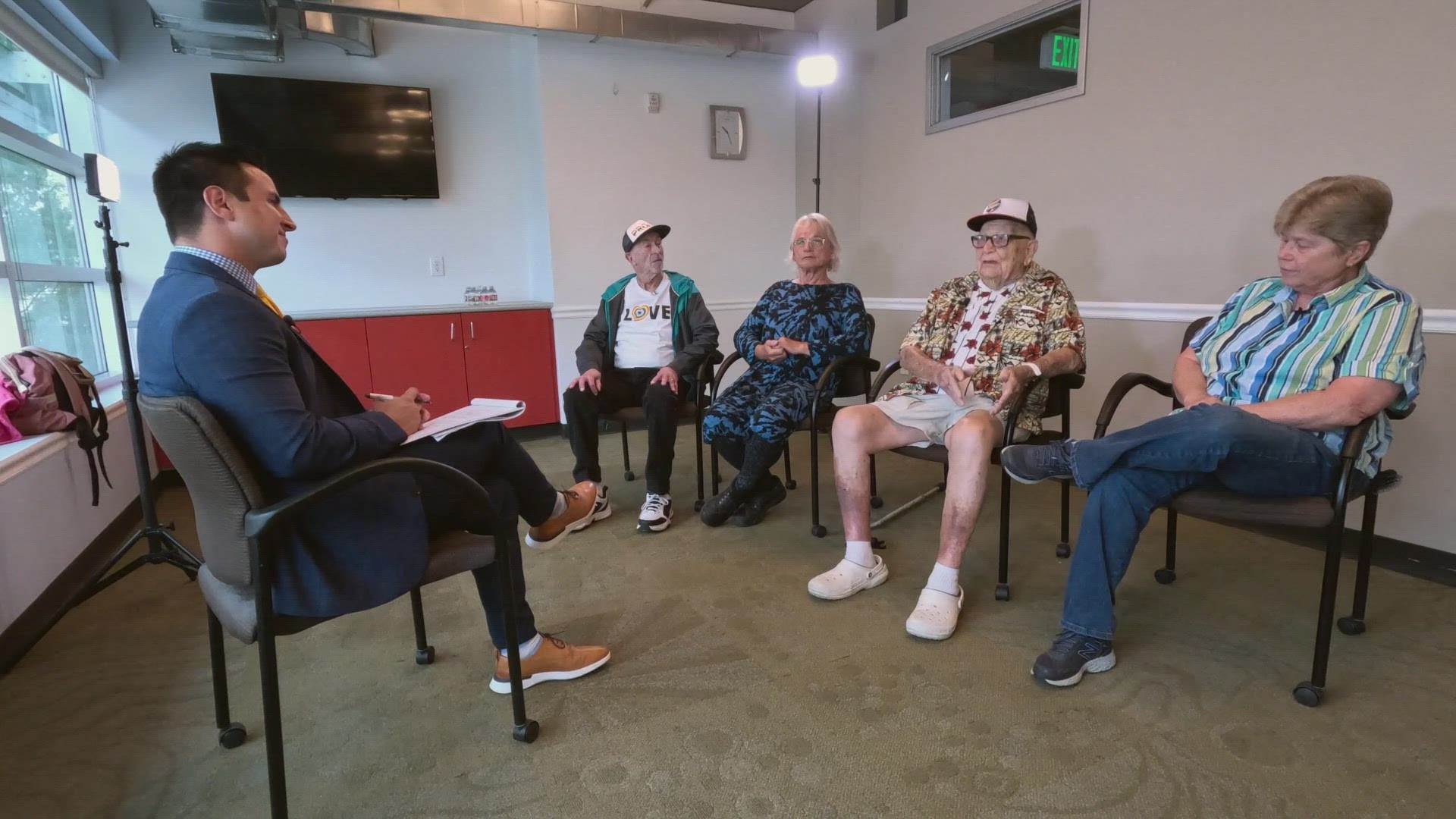DENVER — The LGBTQ+ community has seen many changes in the United States since June 28,1969, when New York City Police raided the Stonewall Inn, a gay club in Greenwich Village in New York City.
At that time, homosexuality was considered a criminal offense, and it was common for police to raid bars like the Stonewall Inn. But this raid led to a nighttime riot. Over the next six days, thousands took to the streets in protest in what became known as the Stonewall Riots, or the Stonewall Uprising.
9NEWS Mornings anchor Jordan Chavez sat down with a few Coloradans who were alive during the Stonewall Riots to learn how the world has changed through their eyes.
Q: What excites you the most about Pride?
Kenneth Felts: I really look forward to the ability to move among a bunch of people just like me. I mean, just a whole crowd of individuals, and they’re all gay like me, queer as can be. And we just have fun.
Cheryl Evermore: My very first Pride was just the sense of belonging that I got, feeling safe to just be myself. I hadn’t felt that way for many years.
Phil Wade: It’s just really cool seeing people who are supportive. They’re not really part of the community, but they know people, and they’re coming here to support them and us is just wonderful.
Miriam Swihart: It's unbelievable to grow up in the time that I did and see these people come with their children. It’s unbelievable to see how many parents I know today that support this.
Q: What do you remember about the Stonewall Riots?
Kenneth: It was the first time that [LGBTQ+ people] really stood up to the police and fought back over a period of several days. And it didn’t end there, which is the important part. Suddenly, there were groups all over the country who started small groups of gay people. So, the momentum was there, and then the following year was the first parade, and it was actually celebrated. So, it really caught on – and that was the point it started changing things. I was married and had a child at that time because I was going to be straight the rest of my life.
Phil: I didn’t hear about Stonewall till maybe 10 years later, when I was out here and it was a Pride thing. It came up during Pride – the history of Stonewall.


Miriam: And let’s not forget to give credit to who was fighting in Stonewall. It wasn’t necessarily lesbians and gay men. It was transgendered people and drag queens, and they did not become accepted by us for a long time. So, they gave us a gift that we did not reciprocate immediately. It’s been a growing period, and as wonderful as life is right now, that dark side is still there and still wanting to take something back.
Phil: And it’s trying to take it back from the same people you were talking about – the transgendered people, drag queens.
Cheryl: I think that’s why it’s so important that we remain as flamboyant as we are. That people cannot push us aside anymore, and make us irrelevant and pass laws that affect us without us saying or doing anything.
Q: Since the time of Stonewall, how have you watched the world evolve, and how have you seen yourself evolve with it?
Phil: Part of it was, although it wasn’t a conscious thought, was: I can come out. I can be more relaxed about who I am. I have no problem talking to people about gay things and gay rights or Pride or things. And most of the people I talk to are straight. It doesn’t really matter. It’s just we’re part of the world now.
Kenneth: It’s just a total difference between then and now as to how I feel. And part of it is the fact that I’m out that I can go and not have to hide. I used to dress very conservatively all my life – black suits and everything. I threw that away and got the striped shirts and everything else. I’m bright, and I’m out, and I let people know. I’ve been told by more than one person that after I came out, suddenly, I’m 20 years younger.
Cheryl: The world is a completely different place, and I’m still catching my balance, it’s moving so fast.
Miriam: I know there’s a whole lot of lives being saved today that would’ve been lost 20 years ago, 30 years ago – and I’m incredibly grateful for that.
Q: Are you hopeful about the future of the LGBTQ+ community?
Cheryl: I do feel very hopeful. They’re on the right track. Don’t let up for a second.
Miriam: I’m so happy for them and grateful for them that they are actually in the forefront. I’m just kind of riding their coattails now.
More LGBTQ+ coverage from 9NEWS:
SUGGESTED VIDEOS: LGBTQ+ Stories

